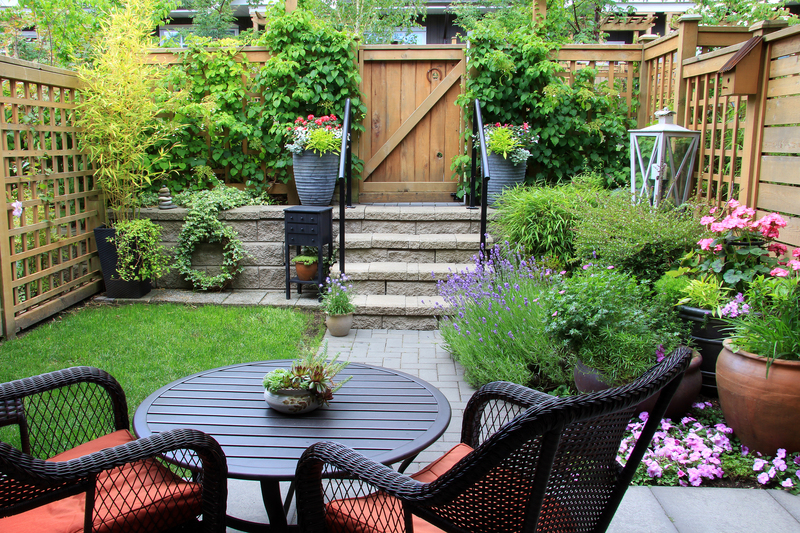The unsung climate champions: Gardens and their impact
Posted on 27/06/2025
The Unsung Climate Champions: Gardens and Their Impact
When the conversation turns to climate action, images of renewable energy, electric vehicles, and international treaties often spring to mind. But rarely do we discuss the quiet powerhouses flourishing in our own neighborhoods and backyards: gardens. These humble green spaces are unsung climate champions that offer a host of environmental, social, and even economic benefits. In this article, we delve deep into the vital role gardens play in combating climate change and why nurturing them matters more than ever.
The Overlooked Importance of Gardens
Gardens are more than decorative patches of greenery. They act as micro-habitats, carbon sinks, and even temperature regulators in urban and rural landscapes. The impact of gardens on the climate is profound yet often understated in mainstream environmental discourse.
- Carbon Capture: Plants absorb CO2, one of the major greenhouse gases, from the atmosphere through photosynthesis.
- Biodiversity Hotspots: Gardens provide refuge and food for pollinators, birds, and other forms of wildlife, boosting local ecosystems.
- Urban Cooling: Strategic planting helps lower surface and air temperatures, mitigating the notorious 'urban heat island' effect.
- Flood Prevention: Gardens improve soil health and water infiltration, reducing dangerous surface run-off during storms.
Despite these benefits, the powerful climate impact of gardens remains largely ignored in policy decisions and even in conversations among climate activists.

How Gardens Help Combat Climate Change
1. Carbon Sequestration: Gardens as Natural Air Filters
One of the most significant but unheralded functions of gardens is carbon sequestration. Every bush, flower, and blade of grass plays its part in capturing carbon dioxide from the atmosphere. Well-tended soils act as huge carbon stores, locking away CO2 that would otherwise contribute to global warming.
Various studies estimate that healthy garden soils can sequester between 0.5 to 1 tonne of carbon per hectare, annually. Composting, mulching, and reduced tillage all increase the capacity for gardens to store carbon, making them a critical yet overlooked solution in the fight against climate change.
2. Biodiversity Sanctuaries in the Heart of the City
Urbanization has resulted in habitat loss for countless species. Gardens, from tiny balcony containers to sprawling community plots, act as sanctuaries for bees, butterflies, birds, and other wildlife. By integrating native flora and sustainable gardening practices, we can transform these green oases into thriving mini-ecosystems.
- Pollinator Pathways: Garden flowers provide essential nectar and pollen, critical for pollinator survival and agricultural productivity.
- Food Web Hubs: Diverse plantings support richer food webs, including beneficial insects and small mammals.
By supporting biodiversity, gardens strengthen the resilience of local ecosystems in the face of climate change, ensuring essential services like pollination and pest control persist in our communities.
3. Urban Cooling and Heat Island Reduction
Concrete and asphalt trap and radiate heat, raising urban temperatures--a phenomenon known as the 'urban heat island.' Strategic planting in gardens can cool surrounding areas in several ways:
- Shade: Trees and large shrubs reduce temperatures by blocking sunlight and providing shade.
- Transpiration: Plants naturally release water vapor, cooling the air around them.
Research shows urban gardens can lower ambient temperatures by up to 5?C, reducing the need for energy-intensive air conditioning and thus further cutting greenhouse gas emissions.
4. Mitigating Flood Risk and Enhancing Soil Health
The impermeable surfaces that dominate cityscapes prevent water absorption, increasing the risk of flash flooding. Gardens with healthy soils and deep-rooted plants act as sponges, absorbing rainwater, replenishing groundwater, and reducing runoff. Moreover, organic gardening techniques like composting enrich soil health, allowing it to store more carbon and nutrients.
These green spaces are also vital for reducing soil erosion, another aspect often overlooked in the broader environmental movement.
Community Gardens: Collective Climate Powerhouses
Beyond private backyards, community gardens have emerged as significant climate action hubs. Managed cooperatively by groups of individuals, these gardens:
- Increase local food security by providing fresh, seasonal produce.
- Reduce food miles and packaging waste, both significant contributors to GHG emissions.
- Offer education on sustainable agriculture and climate resilience.
- Boost community cohesion and wellbeing.
Urban agriculture projects--including rooftop plots, vertical gardens, and edible landscapes--are burgeoning in cities across the globe. They are redefining how we interact with food and the environment, providing living examples of climate-friendly practices in action.
Gardens and Their Socio-Economic Impact
While their environmental impact is undeniable, gardens also have profound socio-economic implications, especially in urban areas.
Mental and Physical Wellbeing
Several studies highlight the mental health benefits of gardening. Access to green spaces reduces stress, improves mood, and encourages physical activity. These improvements translate into better public health and reduced healthcare costs.
Local Economies and Green Jobs
Gardening supports local economies in multiple ways:
- Nurseries, tool shops, and landscape services generate employment.
- Community and market gardens promote entrepreneurship and job creation.
- Eco-tourism and eco-conscious landscaping are rising sectors tied to public and private gardens.
In lower-income neighborhoods, gardens have been shown to enhance food access and affordability, making healthy diets more accessible and cutting transportation-related emissions.
Climate Smart Gardening: Taking Action
If you're inspired to harness the climate benefits of a garden, it's worth considering climate-smart gardening practices. These methods not only maximize environmental impact but also create more resilient and productive gardens:
- Native and Drought-Tolerant Plants: These use less water and demand fewer inputs while supporting local wildlife.
- Organic Mulching and Composting: Enhances soil health, reduces waste, and stores more carbon in the ground.
- Rainwater Harvesting: Minimizes reliance on municipal water, especially vital as climate change makes droughts more frequent.
- No-Dig and Minimal Tillage Techniques: Protects soil structure, improves carbon retention, and supports beneficial soil organisms.
- Permaculture Principles: Designs that mimic natural ecosystems to maximize sustainability and productivity.
Even small changes--like swapping out a manicured lawn for a wildflower meadow or using less fertilizer--can create outsized climate benefits over time.
Policy and Planning: Integrating Gardens for a Resilient Future
Although gardens are individually powerful, their collective impact multiplies when city planners, businesses, and governments integrate them into policy frameworks. There is growing acknowledgment in some regions of the critical climate roles played by urban gardens, leading to initiatives such as:
- Tax breaks or grants for home and community gardening projects.
- Requirements for green roofs and vertical gardens in new developments.
- Public gardening programs that convert vacant lots or roadside verges into usable green spaces.
Recognizing gardens as essential climate infrastructure can improve urban planning outcomes, bolster food security, and increase public engagement with sustainability.

The Unsung Climate Champions -- Gardens -- Call to Action
In the race against climate change, every solution counts. While big technologies and policy shifts capture headlines, it is vital not to overlook grassroots solutions growing right outside our doors. Gardens and their impact extend far beyond aesthetics; they are living laboratories of sustainability, resilience, and hope.
Whether you maintain a private backyard, volunteer in a community plot, or even tend a few potted plants on a windowsill, you're part of a global movement that's driving positive change from the ground up. By advocating for more green spaces, supporting eco-friendly gardening practices, and sharing knowledge, we can empower more people to join the ranks of these unsung climate champions.
What Can You Do?
- Start Small: Even a windowsill herb garden reduces your carbon footprint and supplies fresh produce.
- Go Native: Prioritize plants that support local ecosystems and require fewer resources.
- Engage Locally: Join or support community gardening initiatives in your city or neighborhood.
- Compost: Transform kitchen scraps into nutrient-rich soil, reducing methane emissions from landfills.
- Advocate: Encourage municipal leaders to protect and expand urban gardens.
Remember, every seed planted is an investment in a cooler, greener, more sustainable world.
Conclusion: Celebrating the Green Heroes Among Us
Gardens are the unsung heroes in the climate action narrative. Their collective impact is powerful, shaping not only local environments but global outcomes. Whether you're an avid gardener or new to the scene, recognizing and amplifying the role of gardens as climate champions is an essential step in safeguarding our future.
Nurture a garden; nurture the planet. It's time to celebrate and multiply these powerful, green solutions and recognize gardens for what they truly are: Unsung Climate Champions.
Latest Posts
Windbreaks and Barriers: Essential for Windy Gardens
Pet-Centric Garden Solutions for Vibrant Yards
Curate a Nature-Inspired Playground in Your Garden
Create a Serene Space with 5 Budget-Friendly Low Maintenance Ideas

